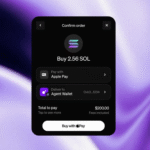Hands-on blockchain education is becoming increasingly vital in equipping students with the necessary skills to thrive in today’s rapidly evolving digital landscape. This experiential learning approach enables participants to engage directly with blockchain technology, addressing the common experience gap often found in traditional educational settings. By participating in simulations and practical projects, learners can develop a deep understanding of crucial concepts such as decentralized finance (DeFi) and smart contracts, which are essential for navigating the complex world of cryptocurrencies.
This hands-on engagement not only enhances students’ confidence and problem-solving abilities but can also prove transformative for individuals from under-resourced backgrounds. Access to practical blockchain experience empowers them to break into a field that is often perceived as exclusive. Educational programs embracing this method not only prepare students for successful careers but also inspire them to become innovators and leaders within the blockchain sector.
As demand for Web3 training increases, academic institutions are starting to adapt their curricula. Many are introducing specialized courses and bootcamps that address both the technical and business aspects of blockchain technology. Institutions like Web3 University and ChainShot by Alchemy are creating structured educational pathways that emphasize skills like smart contract development and decentralized application (DApp) creation. These programs often leverage cutting-edge technologies such as augmented reality (AR) and virtual reality (VR) to craft immersive educational experiences. By offering a combination of asynchronous and real-time instruction, institutions can meet diverse learning preferences, ensuring graduates are equipped with relevant, applicable skills.
Implementing blockchain-based credentialing systems is another development boosting the accessibility of education in this field. This system allows students to earn and share verified credentials with potential employers, effectively bridging the gap between their learning and employment opportunities in the cryptocurrency landscape.
Partnerships within the industry are also showing promise in addressing the skills gap prevalent in the crypto sector. Initiatives like the collaboration between Bitget and ESN Luzern are aimed at supporting more than 500 students through workshops and hackathons, which aim to democratize blockchain education and prepare the next generation of digital innovators. By focusing on practical engagement, these collaborations help students gain experience directly from industry professionals.
Nonetheless, it is crucial for these partnerships to embrace inclusivity to prevent elitism. If efforts concentrate solely on select academic institutions or specific geographic areas, they may unintentionally sideline underrepresented communities. Effective initiatives must ensure accessibility and transparency, aiming to reach a broad demographic that extends beyond traditional educational pathways. Bitget’s ambitious goal to empower 1 million students and early-career professionals through its Blockchain4Youth initiative highlights the potential for partnerships to bring about significant advancements in crypto education.
In addition to hands-on learning, alternative educational models can further enhance the blockchain learning experience. The Montessori method, for instance, promotes self-directed learning, empowering students to explore blockchain technology at their own pace. Project-based learning (PBL) encourages students to work on real-world projects, fostering collaboration and critical thinking. Online learning platforms have emerged as viable alternatives, offering flexibility that allows students to tailor their education to fit their individual needs, especially for those who lack access to conventional classrooms. Furthermore, blended learning combines online education with in-person interactions, creating a comprehensive educational framework that merges hands-on experiences with theoretical insights.
The rise of hands-on blockchain education and innovative partnerships is set to significantly impact the landscape of global crypto business banking. As more individuals become equipped with practical skills in blockchain technology, the demand for crypto banking solutions is expected to grow. This trend is already reflected in the increased interest in crypto payroll systems that enable businesses to pay employees in cryptocurrencies, facilitating seamless cross-border transactions and reducing reliance on traditional banking systems.
Additionally, integrating decentralized finance (DeFi) tools into business operations can improve efficiency and foster financial inclusion. Startups and entrepreneurs can leverage these technologies for funding access, treasury management, and navigating the complexities of global payments. As educational initiatives continue to empower a new generation of digital pioneers, they pave the way for transformative changes in the world of crypto business banking, creating new opportunities for growth and collaboration.
In summary, hands-on blockchain education is reshaping the future of cryptocurrency skills, equipping students with the practical experience they need to excel in this dynamic sector. Through innovative partnerships and varied educational methodologies, the industry is moving toward a more inclusive and accessible future, setting the groundwork for the emergence of the next generation of digital trailblazers.







